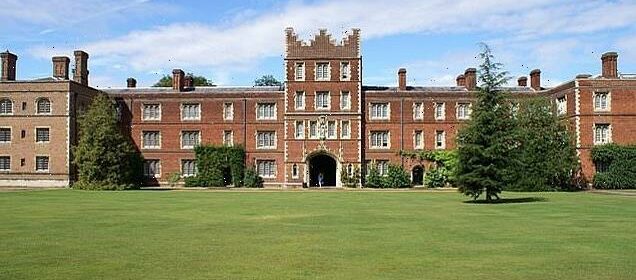Cambridge University hosts 'fanatical' three-day slavery conference

Cambridge University hosts ‘fanatical’ three-day slavery conference amid fears from academics that it will lead to attacks on the Queen’s legacy
- A three day event on slavery and reparations has begun at Cambridge University
- Sources have accused the conference of being ‘fanatical’ and ‘propagandistic’
- Comments made by one activist about the Queen were called ‘distasteful’
A ‘fanatical’ slavery conference began at Cambridge University today amid fears it will attack the Queen’s legacy.
Academics gathered for the first day of the three-day event discussing how and why Britain could pay reparations.
The event, entitled ‘envisioning reparations: historical and comparative approaches’, says it wants to examine the ‘increasingly prominent calls for slavery reparations’.
Organisers said the conference would create ‘a forum to advance the rapidly evolving public debate on slavery’s long legacies and the idea of historical reparation.’
However, insiders have warned the Cambridge University conference has been captured by ‘propagandist’ radical woke activists.
Organising the event is Sabine Cadeau, who led the controversial Cambridge Legacies on enslavement enquiry published last week which claimed the university had ‘an appalling history of abuse’.
Earlier today a researcher, Nicolas Bell Romero, was one of several speakers to deliver a lecture at the event.
An investigation last week said Cambridge University had ‘an appalling history of abuse’ in relation to slavery’. Pictured: Jesus College Cambridge
He was previously criticised for a slavery report on Cambridge Universities widely condemned for its inaccuracies.
In the conference’s online description, activist Wambugu Wa Nyingi said: ‘In the years before independence people were beaten, their land was stolen, women were raped, men were castrated and their children were killed.
‘I do not hold her [the Queen] personally responsible but I would like the wrongs which were done to me and other Kenyans to be recognised by the British Government so that I can die in peace.’
Sources told The Telegraph the comments were ‘distasteful’ so soon after the death of Queen Elizabeth II.
Following last week’s inquiry, a series of recommendations have been made, which the university has committed to implementing.
These include setting up a dedicated slavery research centre, enhancing existing academic links with universities in the Caribbean and West Africa, increasing the number of postgraduate scholarships and bursaries for black British students and students from Africa and the Caribbean, and commissioning a piece of art commemorating the achievements of black academics in the university.
Outgoing vice-chancellor Professor Stephen Toope said: ‘It is not in our gift to right historical wrongs, but we can begin by acknowledging them.
‘Having unearthed our university’s links to an appalling history of abuse, the report encourages us to work even harder to address current inequalities – particularly those related to the experiences of black communities.’
Source: Read Full Article
